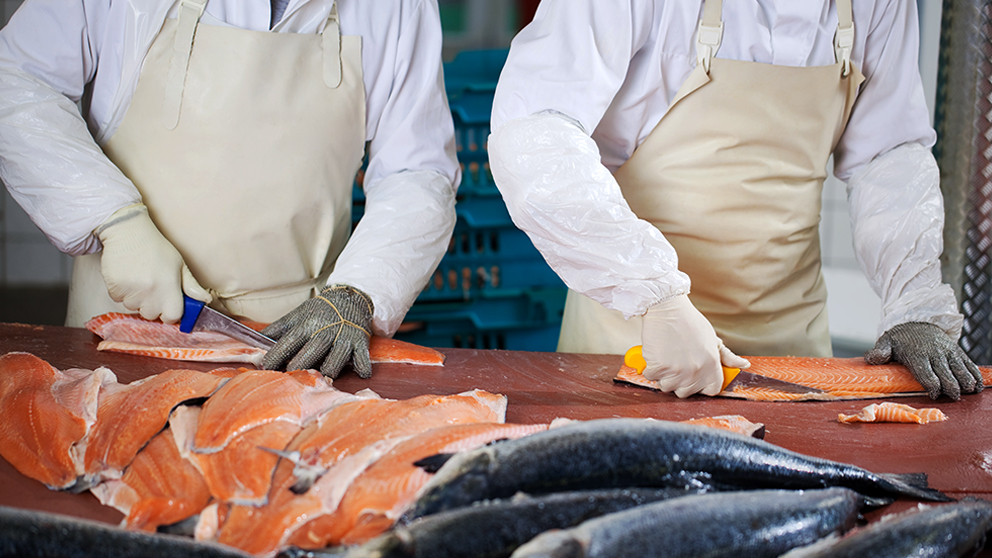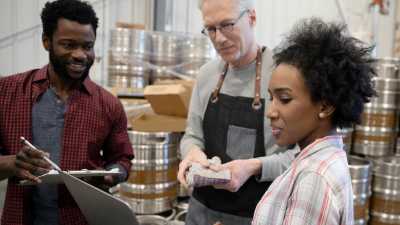Why your food company needs to speak the language of sustainability

When consumers are increasingly attuned to everything from a company’s carbon footprint to where the materials for its products are sourced and how those products are made, it’s a sign for food processors to stand up and take action to consumer demands. As a result, several companies across the country are becoming champions for sustainability.
Sustainability has become something of a bedrock principle, driving the food processing sector to consider how they do business. According to Second Harvest, a food rescue organization and global thought leader on food waste and perishable food redistribution, 58 per cent of food produced for Canadians is lost or wasted every year, of which 47 per cent, or 16.77 million metric tonnes, comes from processing and manufacturing.
Coming of age
Cher Mereweather, president and CEO of Provision Coalition, works with companies throughout the food system to create a circular food economy. She agrees that the issue of sustainability has come of age for food processing and manufacturing.
The increased emphasis on sustainability from grocery retailers - particularly as their focus has shifted from internal operations to outside the organization - leads them to ask questions of their processor partners. Yet many operators continue to regard sustainability with a degree of skepticism, seeing any efforts as a potential drag on the bottom line rather than a potential profit centre.
Embedding sustainability
Provision Coalition works to create a safe space for clients to experiment to prove the viability of sustainability. Look at areas such as food loss and waste prevention or operational efficiencies to see financial returns and embed sustainability into your business model, Mereweather says.
Mereweather says a good sustainability strategy needs to start with the “why” and the answer should come from looking outward. A solid sustainability vision isn’t about your company, but the world it’s trying to create and be a part of. Knowing the “why,” she says, will ultimately impact every area of the business.
“A solid sustainability vision isn’t about your company, but the world it’s trying to create.”
Leading the way
Etobicoke, Ont.- based Club Coffee, for example, built its approach to sustainability around reducing some of the more than 12 billion single-serve coffee pods used each year in North America.
That led to the 2015 introduction of the PurePod100, the world’s first fully compostable single-serve coffee pod. It was a way for the company to take a stand on something that mattered to them and their customers.
Since then, Club Coffee celebrated the production of its one billionth PurPod100, representing the diversion of more than 3,000 tonnes of plastic single-serve coffee pods from landfills. It has also nurtured relationships with coffee companies, including Ethical Bea and Kauai Coffee, and was honoured in 2023 with an innovative business award by Reuters.
LOOP Mission is another food processor operating in a circular economy. The Montreal company purchases imperfect fruit and vegetables from grocers and creates products such as powder, purees and juices from what would otherwise be garbage. Their product line includes ingredients for other food processors to use in their manufacturing, cold-pressed juices, craft beer from day-old bread, gin from repurposed potato scraps from a potato chip processor and soaps made from recycled cooking oil. Leftover pulp from the processing is made into energy bites.
Mereweather says that sustainability is still a new language for many companies, which means there are still many companies out there in need of an assist. For inspiration, check out Impact Canada’s list of entries and their business models in the Food Waste Canada Challenge results.
Article by: Chris Powell

A collection of our top recruitment resources to help you find your next food and beverage employees.

